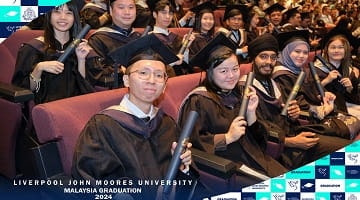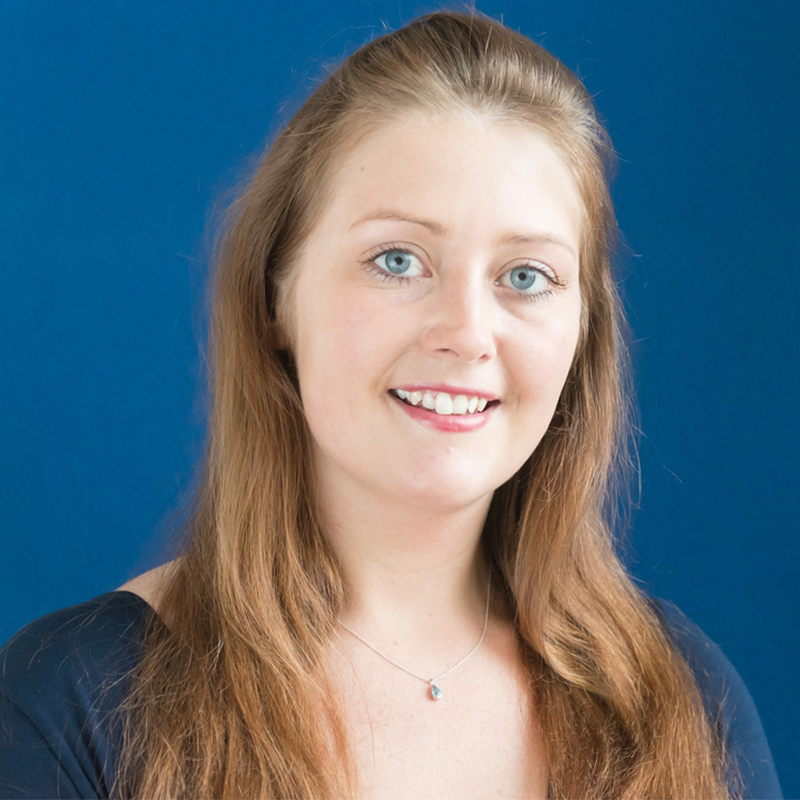2025/26 entry
MSc (2 years Full-time) Digital Marketing Advanced Practice
About this course
This Advanced Practice course will provide you with the knowledge and skills to reach digital audiences, whilst also enabling you to gain practical experience.
- Learn from staff with strong links to professional bodies
- Undertake a group consultancy project
- Benefit from course content which is of a professional standard relevant to potential marketeers
- Study in a dynamic business school, located in the city of Liverpool
Informed by current industry best practice, this masters-level degree is aimed at graduates interested in pursuing a career in digital marketing, and professionals who may already be in a marketing role and would like to diversify into the digital arena.
As the digital economy continues to grow, businesses need to develop a multi-channel digital presence to reach customers.
The programme is designed to meet industry demands by equipping the next generation of digital marketing professionals with the knowledge and practical skills to produce cutting-edge creative strategies and develop, manage and lead a digital marketing campaign.
It enables students to develop key skills in areas such as website development, social media management, content marketing, web analytics, user journey analysis, the effects of multi-screen usage, SEO and mobile integration.
Initially you will explore digital marketing principles and practices, emerging technologies and consumer behaviour in the digital age. You will develop a good understanding both of traditional marketing and of new ways of working in a digital environment, making the programme relevant to those who have studied marketing and those who are from technology backgrounds.
Advanced Practice
In the first year you will complete the taught (classroom) components of the course. During the second year of the course, you and your fellow students will undertake a semester-long group consultancy project. This allows you to apply the theoretical knowledge gained in your previous year to a project brief provided by a business.
Liverpool Business School at Liverpool John Moores University is a member of AACSB International The Association to Advance Collegiate Schools of Business.
AACSB International is a global association of leaders in education and business dedicated to supporting and advancing quality business education worldwide. Through membership, accreditation, research, thought leadership, professional development, and advocacy, AACSB partners with over 1,500 organizations, from more than 90 countries globally. Membership or participation in the Global Education Alliance does not imply accreditation.
Fees and funding
There are many ways to fund postgraduate study for home and international students
Fees
The fees quoted at the top of this page cover registration, tuition, supervision, assessment and examinations as well as:
- library membership with access to printed, multimedia and digital resources
- access to programme-appropriate software
- library and student IT support
- free on-campus wifi via eduroam
Additional costs
Although not all of the following are compulsory/relevant, you should keep in mind the costs of:
- accommodation and living expenditure
- books (should you wish to have your own copies)
- printing, photocopying and stationery
- PC/laptop (should you prefer to purchase your own for independent study and online learning activities)
- mobile phone/tablet (to access online services)
- field trips (travel and activity costs)
- placements (travel expenses and living costs)
- student visas (international students only)
- study abroad opportunities (travel costs, accommodation, visas and immunisations)
- academic conferences (travel costs)
- professional-body membership
- graduation (gown hire etc)
Funding
There are many ways to fund postgraduate study for home and international students. From loans to International Scholarships and subject-specific funding, you’ll find all of the information you need on our specialist postgraduate funding pages.
Please be aware that the UK’s departure from the EU may affect your tuition fees. Learn more about your fee status and which tuition fees are relevant to you.
Employability
Further your career prospects
LJMU has an excellent employability record with 96% (HESA 2018) of our postgraduates in work or further study six months after graduation. Our applied learning techniques and strong industry connections ensure our students are fully prepared for the workplace on graduation and understand how to apply their knowledge in a real world context.
The programme offers opportunities to gain professional certification awards and will prepare you for roles in digital agencies, large companies and SMEs or for self-employment. Many of our graduates have secured exciting positions in the field of digital marketing following graduation. Some have even secured employment before they graduated or started up their own digital agency.
As a digital marketing graduate you will be equipped for roles such as: Analytics Manager, CRM and Email Marketing Manager, Digital Agency, Account Manager, Content Creator, Digital Marketing Manager, Web Manager, eCommerce Manager, Pay per Click Manager, Search Engine Optimisation (SEO) Manager, Social Media Manager, and a host of other roles.
The student experience
Discover life as a postgraduate student at LJMU.
News and views
Browse through the latest stories and updates from the University and beyond
Course modules
Discover the building blocks of your programme
This course is currently undergoing its scheduled programme review, which may impact the advertised modules. Programme review is a standard part of the University’s approach to quality assurance and enhancement, enabling us to ensure that our courses remain up to date and maintain their high standard and relevancy.
Once the review is completed, this course website page will be updated to reflect any approved changes to the advertised course. These approved changes will also be communicated to those who apply for the course to ensure they wish to proceed with their application.
Your programme is made up of a number of core modules which are part of the course framework. Some programmes also have optional modules that can be selected to enhance your learning in certain areas and many feature a dissertation, extended report or research project to demonstrate your advanced learning.
Core modules
Advanced Business Practice
60 credits
This module provides opportunities for you to develop as part of a team of consultants working on a live business project, applying theoretical knowledge in a practical environment.
Experiential Marketing in the Digital Era
20 credits
Learn how to critically evaluate the role of UX within organisations. Throughout the module, students will learn to critically analyse and understand the online customer experience through group discussion, theoretical analysis and live lab sessions.
Digital Marketing Communications
20 credits
Critically apply various digital communication tools and learn how to create digital content to address specific objectives. Learn how to critically evaluate best practice methods for online presence.
Data Analysis and Application
20 credits
This module looks at data analysis as a technology-driven process for analysing data and presenting actionable insight to marketing professionals and experts. Build awareness of the importance of data for marketing and learn about the novel approaches that are revolutionising the marketing industry (Data Science, Big Data, Machine Learning, Internet of Things, Artificial Intelligence etc.). Learn basic concepts of contemporary data analysis and master tools for transformation of structured data into actionable information.
Digital Marketing Strategy and Planning
20 credits
Learn how to design, deliver and manage a strategic digital campaign. Evaluate the various factors which influence strategic marketing decisions in the digital context.
Digital Consumer Psychology
20 credits
Gain a critical understanding of the psychological elements of human cognition, such as attention and memory, in order to understand the behaviour of consumers in a digital marketing context.
Research Methods for Digital Marketing
10 credits
Gain a deeper understanding of research competencies with specific reference to digital marketing and the data collection methods that can be utilised. Research philosophies, strategies and methods associated with research within business and marketing are critically examined.
Research Project
60 credits
Develop and execute a research project with guidance and supervision. Apply concepts from both digital and wider marketing literature, along with research methodology concepts and techniques, to a specific problem or scenario.
Digital Industry Clinic
10 credits
Learn from industry professionals in a four hour evening workshop which runs over four weeks in semester 2. The workshops will teach you to use a range of software that is currently used in industry so that you are equipped with relevant practical skills for this ever evolving sector.
Teaching
An insight into teaching on your course
Study hours
Year 1
Contact hours for lectures, seminars and workshops total 12 hours per week in each of the two taught semesters, scheduled over two or three days maximum and between the hours of 9.00am and 6.00pm.
Year 2
In the second year of study you will spend your first semester working on a business consultancy project with the second semester working on your dissertation.
A combination of workshops and tutorials will support progress throughout the consultancy project and dissertation module.
Teaching methods
The key concepts and trends of digital marketing will be introduced via case studies and hands-on practical work. You will be prepared for management and leadership roles via a taught module in semester one and hands-on experience of campaign management in semester two.
Next, you will work to plan a digital marketing campaign. This will demand both innovative and creative thinking, and a good understanding of current and emerging technologies as well as practical project management techniques using an industry standard methodology, such as Agile.
To help you appreciate the challenges faced by digital marketing practitioners, we will invite guest speakers to deliver seminars based around their own professional experiences. Previous guest speakers have included Amanda Dolan from BoohooMAN, Andi Jarvis from Eximo Marketing, Paul Corcoran from Agent Marketing, Rob Manning from Reckitt and Josh Beale from Mapp Digital.
Applied learning
The business consultancy project that you will undertake in the second year of study will enable you to gain practical skills and work with students from your course as a team of consultants. You will apply the theoretical knowledge you have gained by undertaking a project for a business, enabling you to gain real workplace skills.You will undertake group tutorials and study in our dedicated Management Development Suite, based in a listed building in Liverpools historic Georgian Quarter.
Assessment
How learning is monitored on your programme
To cater for the wide-ranging content of our courses and the varied learning preferences of our students, we offer a range of assessment methods on each programme.
Assessment methods on this programme include: presentations, reports and portfolio assessments. There are no formal examinations.
Course tutors
Our staff are committed to the highest standards of teaching and learning
Dr Natalie Taylor
Programme Manager
Natalie studied BA Marketing and Advertising at Hull University, graduating in 2007, and then continued her studies in higher education by completing her PhD at The University of Central Lancashire. After lecturing for several years, Natalie developed a keen interest in digital marketing so expanded her skill base by completing the Chartered Institute of Marketing Professional Diploma in Digital Marketing and Web Analytics. Over the last few years, Natalie has been managing the MSc in Digital Marketing along with teaching digital marketing modules at postgraduate and undergraduate level.
Students on the programme will use their new skill base and apply it to their own strategic marketing plan
School facilities
What you can expect from your School
The School is based in the Redmonds Building, in the heart of the bustling Mount Pleasant Campus and Liverpool's growing Knowledge Quarter. The building is home to high quality lecture theatres and seminar rooms, social spaces, and a café. It is only a short walk from LJMU's Aldham Robarts Library, which contains all the resources you will require for your studies, and is open seven days a week.
Liverpool Business School also has a dedicated Management Development Suite, based in a listed building in the historic Georgian Quarter of Liverpool and a short walk from the Redmonds Building. The building has recently undergone £1.2 million investment to provide a professional learning space.
Entry requirements
You will need:
Qualification requirements
Undergraduate degree
- a good second class honours degree in any relevant discipline
International requirements
-
IELTS
- IELTS 6.0 (minimum 5.5 in each component)
-
Other international requirements
- International students applying to study a full-time taught Masters, MRes, MPhil or PhD at LJMU should check if they require an Academic Technology Approval Scheme or ATAS certificate. Contact International Admissions Team for more details
- International students entering on a Student visa cannot study part-time
Further information
-
Extra Requirements
- IDM and CAM qualifications will be considered alongside relevant industry experience
- Exceptionally, the requirements of a second class honours degree may be waived where applicants have a minimum of five years' experience working in a marketing-related area
-
RPL
- RPL is accepted on this programme
Application and selection
Securing your place at LJMU
To apply for this programme, you are required to complete an LJMU online application form. You will need to provide details of previous qualifications and a personal statement outlining why you wish to study this programme.
The University reserves the right to withdraw or make alterations to a course and facilities if necessary; this may be because such changes are deemed to be beneficial to students, are minor in nature and unlikely to impact negatively upon students or become necessary due to circumstances beyond the control of the University. Where this does happen, the University operates a policy of consultation, advice and support to all enrolled students affected by the proposed change to their course or module.











